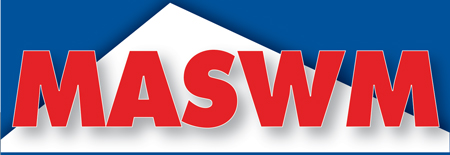
Members | About Workshops | Services for Missourians | News
Dignified and meaningful employment
for people with disabilities
Workshops Face Nearly Constant Funding Hurdle
Workshops have taken many forms in Missouri, with some consisting of a single workshop while others are multi-dimensional programs including employment, residential and other services.
Equally complex is funding for workshops. In fact, funding variance and the quest for financial stability are among the biggest factors in shaping workshops.
Early workshops operated almost exclusively on donations and contracts. Contracts—money paid for goods and services produced by the workshops—remain the largest single source of operating revenue. Other sources include donations, including gifts from parents and others who see the importance of workshop operations.
A significant supplement to contracts and gifts came with passage of Missouri Senate Bill 40 in 1971. While the earlier SB 52 set the stage for Extended Employment Sheltered Workshops to operate, SB40 provided important funding support by enabling local counties to create tax levees for workshops and residential facilities.
Like SB 52, SB 40 was the result of several years’ effort when it finally became law. Unlike SB 52, Senate Bill 40 was a result more of correcting problems that had been observed during the early years of services. SB 52 addressed a complete lack of options, SB 40 attempted to improve them through funding.
"It was excruciating to find jobs to keep the workshop going," Project Workshop Manager Dave Hurst recalled. "We had to go around and find work and not many people had heard of workshops. It was very difficult at times."
SB40 authorized each county in Missouri to establish a tax levee for services to people with developmental disabilities. A locally appointed "SB40 board" would disperse the levee funds for each county.
SB 40 funds were originally targeted for "vocational and residential" programs. In the years since a majority of Missouri’s counties took advantage of SB40, other programs from day habilitation to daycare were added when various groups sought to use the funding. In 1999, a Missouri Appellate Court decision re-emphasized the original target services and spelled out the other services allowed for use of SB 40 funds.
Workshops target self-sufficiency but economic trends make that difficult. While workshops are better known today, downsizing and international competition make contracts almost as difficult as they were in the late 1960s.
"Today it’s difficult because there is less hand work," Hurst said. "If there is a large quantity and time, companies will send it to Mexico or China. Plus, they’ve removed a lot of hand labor either by design or by mechanization. The amount of work that is available is less today."
This is one reason many workshops have developed original products, expanded supported employment programs with private industry or sought outside service contracts.
"It’s a challenge," Hurst concluded. "There would be reason for concern but the workshops have always proven themselves to be very effective."
There are 82 counties, plus the city of St. Louis that have passed SB40. Forty-three of these belong to MACDDS. Estimated revenue for 2001 was $54,773,258 of all counties. Estimated revenue for counties belonging to MACDDS was $44,431,698.
MASWM The Missouri Association of Sheltered Workshop Managers
If you have questions, please contact:
President Rob Libera – (636) 227-5666 or rlibera@lafayetteindustries.com
or Legislative Chair Kit Brewer – (314) 647-3300 or cbrewer@cuinc.org